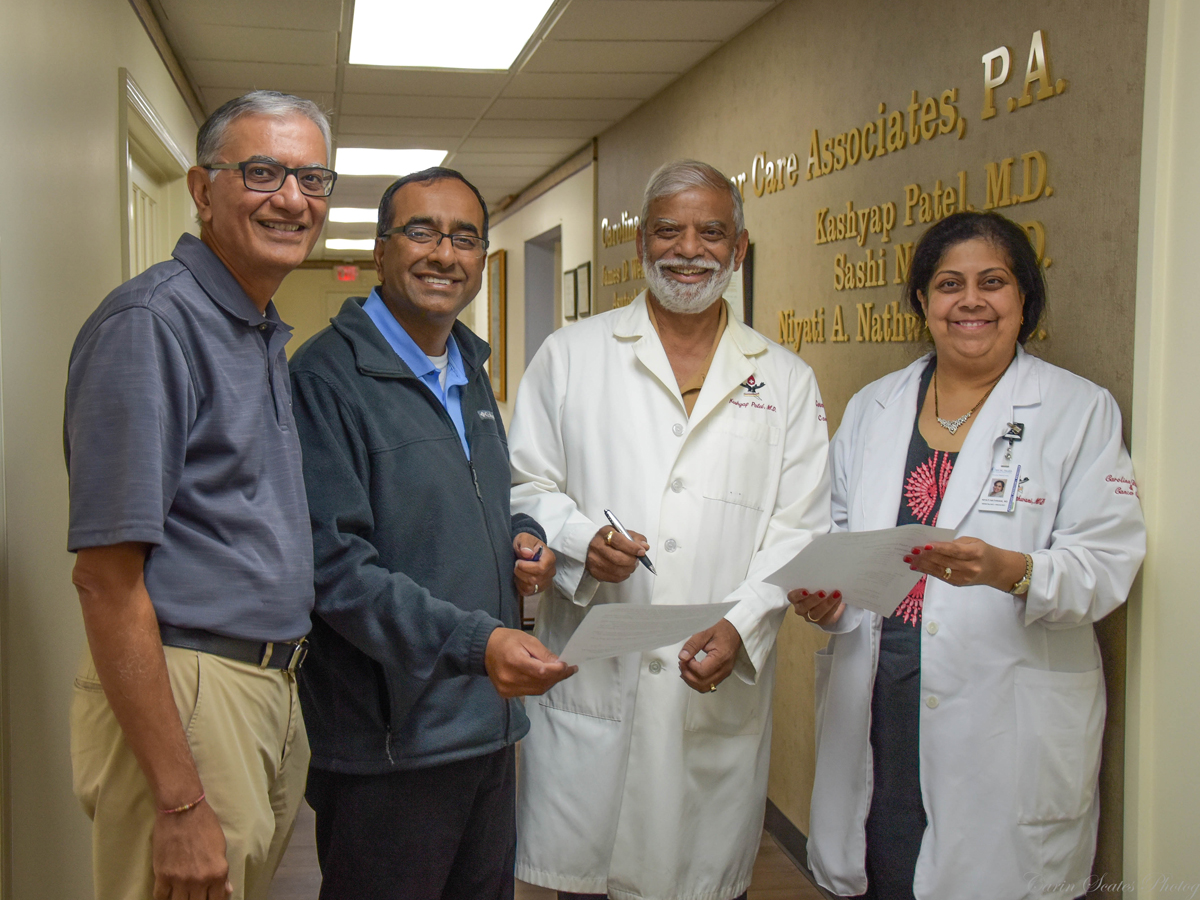In Dr. Kashyap Patel’s ideal world, doctors understand much more about their patients than just their medical diagnosis. When patients are worried about how to pay for food or transportation, for example, their doctor knows and finds ways to help.
In this ideal world, doctors are compensated and have a renewed sense of purpose as they shift to patient-centered care that is more holistic.
“Sometimes we forget that a patient is a husband, wife, brother, sister, cousin,” said Dr. Patel, Chief Executive Officer of Carolina Blood and Cancer Center Associates (CBCCA), a pair of oncology practices based in Rock Hill.
“Rather than focusing on the diagnosis, we need to see the diagnosis as part of the whole patient who might have other non-medical factors that impact health and longevity,” Dr. Patel added.
To effectively address these multifaceted needs and the costs accrued, Dr. Patel and a growing number of doctors hope to transform patient care and reimbursement for doctors. The heart of this transformation is the No One Left Alone (NOLA) Foundation, a not for profit launched three years ago by Dr. Patel and backed by some impressive partners.
Together, the CBCCA team hopes that NOLA will engender a playbook for other practices- a playbook that evaluates and offers solutions to concerns among the underserved.
“The foundation has already helped disadvantaged patients get cutting edge cancer care plus food, shelter and financial support to cover the costs,” explained Dr. Patel.
“Policy alone can’t solve the inequities of healthcare, especially cancer care,” he added. “Community practices must be ready to address inequities as part of future value-based models so that patients keep coming to community clinics and practices succeed.”
‘We need to give back to the country. We are part of its DNA.’
“At the CBCCA, our team decided to study the issue in depth and bring solutions of one step at a time under the broader umbrella of No One Left Alone (NOLA) Project,” Dr. Patel explained.
The Pilot Phase of NOLA – January 2021 through December 2021- involved collaboration across multiple stakeholders and entities, including financial assistance foundations and pharmaceutical companies that provided drugs. CBCCA also partnered with local nonprofits, congressional offices, state health departments and state Medicaid agencies, to name a few.
“I told my partners that we must stand up for the underserved. We have cozy lives, and we need to give back to the country,” said Dr. Patel. “We are part of its DNA.”
The practice dedicated 2.5 full time staff to the sole purpose of understanding, tracking, and addressing the socioeconomic aspects that impact patients’ access to care, starting with a lack of insurance but including transportation and other issues.
The practice also hired a full-time pharmacist to streamline the process of financial navigation and assistance – and to track data.
During the first phase, the CBCCA team and NOLA staff then attended to each factor leading to Cancer Health Disparities (CHD) at a local level; the developed innovative interventions for medically underserved communities in the South Carolina counties of York, Chester, Kershaw, Chesterfield, and Lancaster.
Regardless of patients’ ability to pay, the interventions helped them access cancer related screening, diagnostics, treatment, resources, insurance options, as well as emotional, social, and spiritual support, Dr. Patel explained.
For example, NOLA staff coordinated care and access to the following services/resources to alleviate patients’ unmet needs:
- Utility support (the local utility company facilitates a payment waiver for patients with advanced cancer with a life expectancy of less than a year)
- Waived fees for local gym membership
- Gas cards through the American Cancer Society and Pathways – a local community organization
- With the assistance of local charity organizations – transportation and utility assistance or help in accessing benefits, housing, and/or food
- With the assistance of the local congressional office, patients’ qualifying applications were expedited through the Department of Social Services and state Medicaid program
- Grant availability – the team updated a list of foundations weekly to for more efficient access.
“Every step is an effort to reduce preventable mortality- early mortality- and significant individual and community financial burden,” he added.
“CBCCA’s meticulous collection of data and specific outreach have already confirmed that medicine cannot just be putting chemicals into the body,” said Dr. Patel. “We can show that when a patient is living in a car and has food insecurities, those needs must be recognized and addressed in order for their health to improve long term.”
“During Phase 1 of NOLA, CBCCA incurred direct costs of approximately $150,000 for additional staff hired and program-related resources,” explained Dr. Patel. “Indirect costs were about $60,000 in excess physician time, an additional 1,000 hours of study and research, and 200 hours of other staff time.”
In addition to out-of-pocket costs and free drugs for 154 patients, the CBCCA raised direct and indirect contributions of more than 11 million dollars during NOLA’s pilot phase.
Cracking the Code
Most physicians, especially those living in rural communities with underserved populations booming, want to help patients more holistically, but there is often a disconnect between their desire to do more and the time and money needed to assist.
“How do I work with the system that is in place to maximize what I can do for my patients?” they ask.
NOLA is cracking that code.
“We are currently developing CME programs that will mentor physicians who want to treat their patients more holistically,” said Dr. Patel. He also noted that some of the CME topics include, but are not limited to:
- What are social determinants of health (SDOH)
- Identify Health Related Social Needs (HSSN) through data collected from SDOH
- Implementation of newer CMS initiatives that address Health Related Social Needs (HrSN) including Community Health Resource Integration (CHI), Principal Illness Navigation (PIN)
- Cancer Health Disparities and Individual Factors That Lead to Disparities
- Identifying and Addressing Barriers to Cancer Screening
- Barriers to Enroll Underrepresented Minorities in Clinical Trials and How To Address Them
In conjunction with the SCMA, NOLA will also offer a series of webinars about implementing new CMS reimbursement billing codes for Patient Navigation Services. Two anticipated topics for the series include:
- Principal Illness Navigation (PIN) Services Documentation, Coding, and Billing
- Reviewing Community Health Integration (CHI), Social Determinants of Health (SDOH) Risk Assessment, Principal Illness Navigation-Peer Support (PIN-PS)
Dr. Patel has filled many roles – photographer, journalist, oncologist, leader, and author. Each role has been a journey of self-discovery and empathy fueled by his insatiable passion to end heartbreaking disparities, especially in healthcare.
When Dr. Patel created NOLA, he had no way of knowing that it may allow him to make his greatest contributions yet toward helping people. NOLA’s goal is to provide the resources and a scaffolded path that enables more doctors to walk the talk too.
NOLA’s Founding Team
Dr. Niyati A. Nathwani
Dr. Nathwani is the current president of NOLA. She is board certified in Internal Medicine, Hematology and Medical Oncology. She has been with CBCC since August 2007, where she serves as the associate director of research and oversees Human Resources.
Dr. Emily Touloukian
Dr. Touloukian is a medical oncologist at Coastal Cancer Center in Myrtle Beach, SC. She is board certified in medical oncology, hematology, and internal medicine. She is the immediate past president of the South Carolina Oncology Society and the current president of the medical society of Horry County.
Holly Pisarik
Holly Pisarik is an attorney and senior vice president of advocacy and policy counsel at SCMA. She has served as chief counsel and cabinet director for over three years at the South Carolina Department of Labor, Licensing and Regulation. Pisarik has also worked as a chief legal counsel for Governor Nikki Haley in SC.
Ashima Kodali
Ashima Kodali has worked with CBCCA since 2021 with a special interest in clinical trials, dsparity studies and NOLA. She is the alternate executive director of NOLA, and she is committed to ensuring that CBCCA patients have access to the resources and facilities needed to live a comfortable and holistic life.


